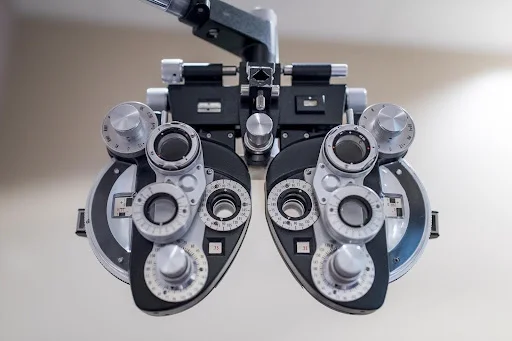Many individuals tend to overlook or delay eye exams, attributing it to false assurances from a lack of noticeable symptoms. Keep in mind that some eye conditions develop gradually and without visible warning signs.
Routine eye exams can detect these issues early and work as a preventive measure to maintain long-lasting vision. See why everybody should book these appointments, regardless of age or current visual acuity.
Discover insights that matter—check out our related post for deeper knowledge.
Early Detection
One of the primary reasons for scheduling regular eye exams is the potential for early detection of eye diseases. Glaucoma, macular degeneration, and cataracts can develop silently, and that’s why detecting them in their early stages increases the chances of effective treatment and managing symptoms. For those in Singapore, look into eye specialists at Asia Pacific Eye Centre who can monitor vision changes and keep track with regular check-ups. They even offer suitable treatments like LASIK and cataract surgery.
Glaucoma, a disease characterized by increased pressure in the eye, can lead to permanent vision loss if not caught in time. Nearly half of those affected by glaucoma are unaware they have it, highlighting the importance of regular screenings. Regular visits can identify any changes needing attention and help you maintain sharper vision.
Vision Changes
The risk of developing vision problems rises considerably in older adults. Presbyopia becomes more prevalent as the eye’s lens loses elasticity, making it difficult to focus on nearby objects. An eye care professional can prescribe corrective lenses, offering tailored solutions that cater to your visual needs.
Many people may not recognize the initial symptoms of deteriorating vision, confusing them with normal aging processes. Through comprehensive eye examinations, specialists can clarify what a normal change of aging from what requires intervention. This approach preserves visual clarity and reduces the probability of unnecessary accidents or falls related to poor sight.
Better Quality of Life
The quality of life can dramatically improve with proper vision care. Sharp vision will help engage in daily activities, driving, and enjoying recreational pursuits. Regular eye exams contribute to a more fulfilling life so that any potential vision issues are addressed promptly. Poorly managed visual impairments can hinder job performance, lead to isolation, and diminish social engagement.
Vision care allows for clearer vision and promotes a positive mental state. Individuals may experience an increase in confidence when their vision meets their needs. Staying on top of vision health allows for adaptive strategies and tools, elevating lifestyle quality.
Children’s Vision and Eye Exams
Children’s vision is sensitive to issues that arise during developmental phases. Early identification of vision problems can influence a child’s learning and social interactions. Children undergo their first comprehensive eye exam by the age of one, with subsequent evaluations at various developmental milestones.
Identifying issues like amblyopia (lazy eye) early allows for convenient intervention to secure healthy visual development. Schools rely on parents to monitor children’s visual health, but many parents can overlook signs that indicate an eye issue. Proactive monitoring and regular appointments help to maintain a child’s readiness for structured learning environments.
Technology and Eye Care Advances
The field of eye care is evolving with technological advancements that enable comprehensive assessments. Imaging systems allow for assessments that were impossible just a few decades ago. Retinal imaging can diagnose early stages of diabetic retinopathy and macular degeneration.
Advances in optical coherence tomography aid specialists in obtaining high-resolution images of the retina. These progressive tools enable accurate diagnosis and tailored treatment plans. As technology improves the precision of eye exams, the ability for professionals to detect potential issues before they escalate has become more feasible.
Routine Eye Care Plan
To maintain optimal eye health, establish a routine eye care plan: it should include scheduling exams based on age and risk factors. For adults under age 60, comprehensive evaluations are recommended every two years, while individuals over 60 or at risk may need annual checks. Regular evaluations align your vision care with your lifestyle changes so that emerging needs are addressed swiftly.
Maintaining an open dialogue with your eye care provider regarding your lifestyle and vision concerns can result in a more personalized experience. A thorough understanding of your family history can determine potential hereditary issues. Building a trustworthy partnership with an eye specialist fortifies your journey towards maintaining clear vision.

Regular check-ups provide critical insights into your eye condition and your general health. Engaging with well-trained eye specialists will produce tools and techniques necessary for staying on top of your vision needs. Every visit presents an opportunity to address concerns, update prescriptions, and celebrate the journey towards better vision health.
Spotlight on success! Read our featured post to gain expert insights now.







